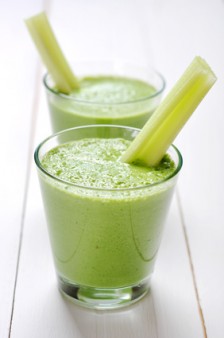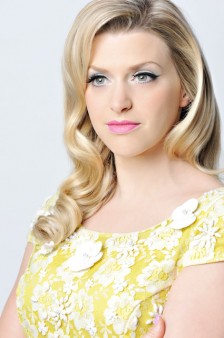How can I help my husband?
Q. My husband, 45, has been diagnosed with diverticular disease. Can you recommend anything to help? A. Diverticular disease occurs when diverticula – small pouches – form on the colon. It affects about 25 per cent of us by the age of 60 and is probably caused by a lack of fibre in the diet.
The symptoms of diverticular disease include lower abdominal pain and/or bloating, diarrhoea, constipation and passing mucus with stools, according to gastroenterologist Professor Ingvar Bjarnason of King’s College Hospital NHS Foundation Trust.
About one in ten of this group develop diverticulitis, which results if the pouches become infected or obstructed. Sufferers have more severe abdominal pain, tenderness in the left lower abdomen and a high temperature. Developing diverticulitis may be due to insufficient ‘friendly’ bacteria in the gut.
Diverticulitis may progress to complications such as intestinal bleeding, blockages, fistulas (abnormal ‘tunnels’ that allow the bacteria to travel to other parts of the body) and peritonitis (when an infected diverticulum splits).
Probable risk factors include smoking, being overweight, physical inactivity, constipation, steroids, immune-suppressive drugs and use of non-steroidal antiinflammatory drugs (NSAIDs) such as ibuprofen.
A person with diverticular disease is not more likely to get bowel cancer. However, colon cancer is often considered in the diagnosis during an attack of diverticulitis.
Antibiotics are prescribed for diverticulitis, with painkillers if needed, but NSAID s including over-the-counter ibuprofen and diclofenac should be avoided. Surgery may be necessary.
Dietary and conventional treatments for diverticulitis are generally unsatisfactory. A high-fibre diet is often recommended, especially for patients with constipation, but this may increase abdominal bloating. Laxatives are often given but there is a fine balance between maintaining regular bowel movements and diarrhoea. Patients with diarrhoea as their main symptom often find that the drug treatments lead to constipation.
Therefore, each patient should be given individual dietary advice. Soluble fibre (a plant food that dissolves in water) may help some (see above), eg, oats, beans and lentils, ground psyllium seeds, prunes, pears, citrus fruits, broccoli and carrots.
 Research is ongoing into a new type of probiotic called Symprove, which restores the balance of friendly gut bacteria. Professor Bjarnason advises your husband to try it, ‘as it has been clinically proven to treat IBS and could help his similar symptoms. A three-month course is recommended, with a maintenance course from time to time.’ Find Symprove Original at www.victoriahealth.com/ £21.95 for 500 ml - buy here.
Research is ongoing into a new type of probiotic called Symprove, which restores the balance of friendly gut bacteria. Professor Bjarnason advises your husband to try it, ‘as it has been clinically proven to treat IBS and could help his similar symptoms. A three-month course is recommended, with a maintenance course from time to time.’ Find Symprove Original at www.victoriahealth.com/ £21.95 for 500 ml - buy here.
THREE OF THE BEST: SUPER-ENERGISING GREEN FOODS

Amazing Grass Energy Green Superfood With whole leaf greens, yerba mate and organic matcha green tea, plus polyphenols, probiotics and enzymes, this powder mixes well with juice or smoothies. Our tester bounced like the Duracell bunny and saw the difference in her skin and eyes. £29.99 for 240g (30 servings) - buy here
Terra Nova Life Drink A cornucopia of plant proteins, enzymes, pre- and probiotics, fibre and essential fatty acids, £25.75 for 227g (about 19 servings) - buy here. Delicious in smoothies, such as unpasterurised Savse Raw Smoovies (£2.49 for 250 ml at www.savsesmoovies.com - click here for more info).
Pukka Herbs Clean Greens Capsules This nutrient-rich blend of potent chlorophyll-rich green foods alkalises the body. Ideal for people who don’t like powders. £15.95 for 90 capsules (dose: three capsules twice daily) - buy here
AN ONLINE BOOST FOR MENTAL HEALTH
 Bubbly TV presenter Anna Williamson, 31, has a personal reason for supporting Elefriends (www.elefriends.org.uk), the online community of mental health charity Mind. ‘I suffered from terrible panic attacks and insomnia. I smiled and laughed but inside I felt lonely, desolate and racked with anxiety.’ After a breakdown, Anna was helped by a psychologist and is now a trained counsellor herself. ‘I wish Elefriends had existed when I was first suffering,’ she says. ‘It can be so helpful to have a safe place to share your feelings when you’ve had a bad day, when you are home alone and not feeling great.’ Anna wants to dispel the stigma that exists about mental illness. ‘It’s very common but you can come through it. I love life and I know myself so much better now. And I am still fronting TV programmes because I said to someone, "I don't feel great, please help".'
Bubbly TV presenter Anna Williamson, 31, has a personal reason for supporting Elefriends (www.elefriends.org.uk), the online community of mental health charity Mind. ‘I suffered from terrible panic attacks and insomnia. I smiled and laughed but inside I felt lonely, desolate and racked with anxiety.’ After a breakdown, Anna was helped by a psychologist and is now a trained counsellor herself. ‘I wish Elefriends had existed when I was first suffering,’ she says. ‘It can be so helpful to have a safe place to share your feelings when you’ve had a bad day, when you are home alone and not feeling great.’ Anna wants to dispel the stigma that exists about mental illness. ‘It’s very common but you can come through it. I love life and I know myself so much better now. And I am still fronting TV programmes because I said to someone, "I don't feel great, please help".'